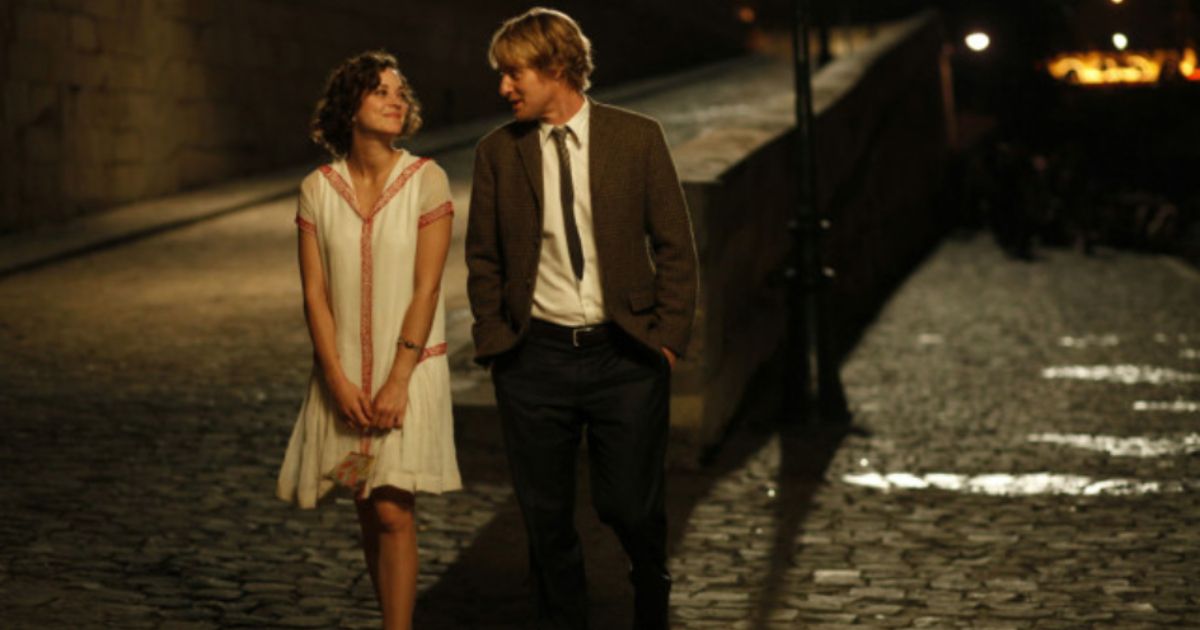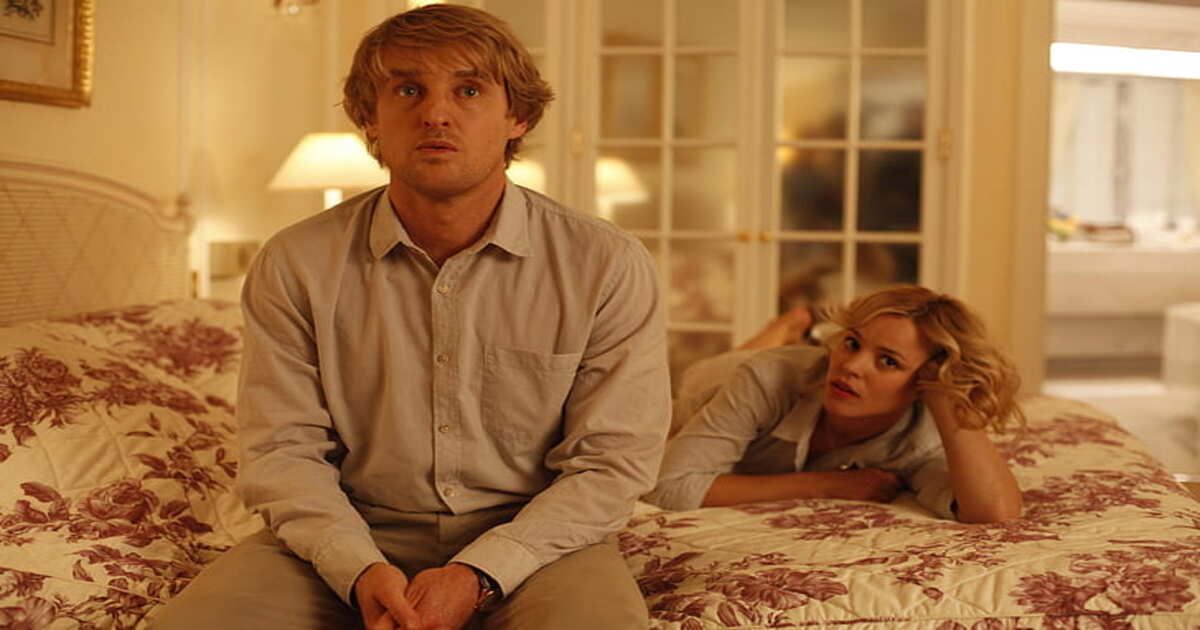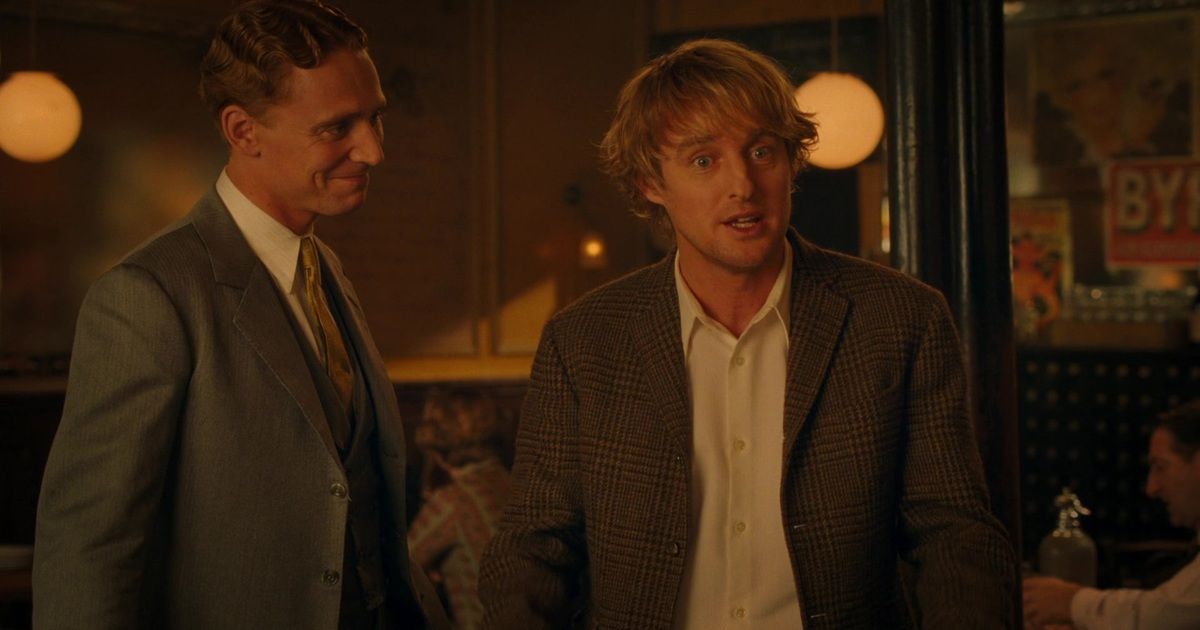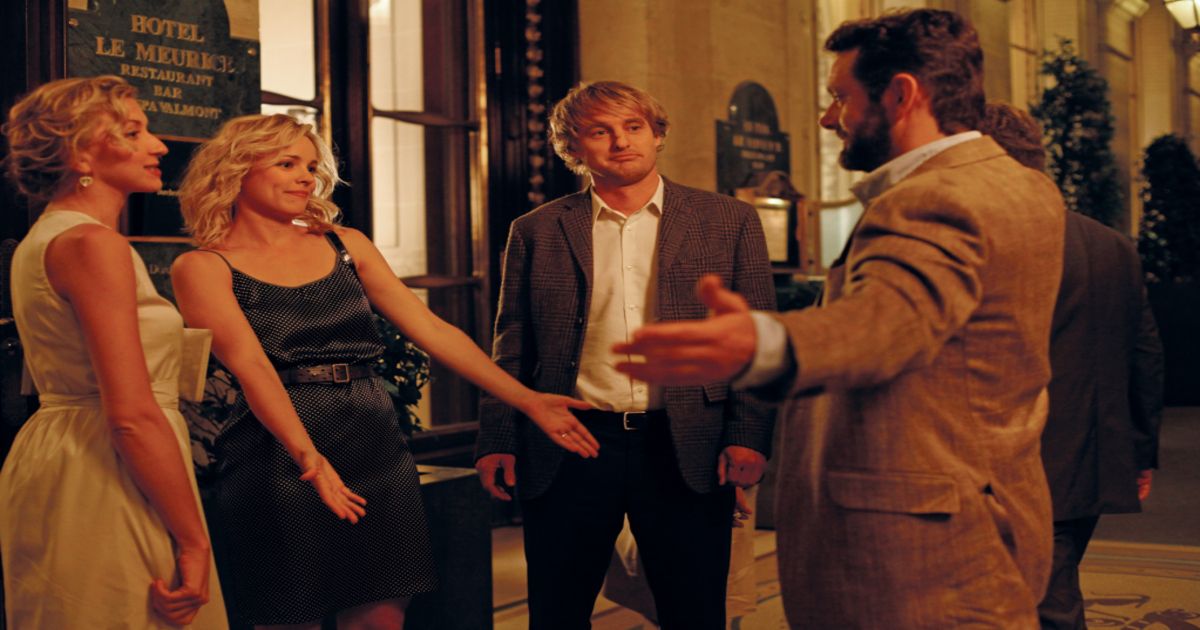Movies about writers have a secret pull, managing to draw viewers from every fan base. There is something about the mysterious and quiet life of writers that begs our attention and stirs our curiosity. Could it be the fact that we want to infiltrate the mind that is able to create fictional worlds and understand it in the hope of comprehending how the artistic process takes place? Or could it be that the writer is always regarded as someone very different from the rest of the profiles that we are familiar with? Midnight in Paris tries to capture this very secret ingredient that makes a writer seem as magical as their creative work. It dives into the writer’s most intimate fantasies, anxieties, aspirations and hopes. Directed by Woody Allen and released in 2011, this movie was an instant success.
Midnight in Paris features a successful Hollywood screenwriter, Gil Pender (Owen Wilson), who is not particularly satisfied with his job and aspires to become a novelist instead. His lack of self-confidence and inner conviction that it is such a difficult dream, prepare the ground for the whole story. This diminished sense of self is deepened by his dysfunctional relationship with his wealthy fiancée—played by the amazing Rachel McAdams—who fails to see his talent and whose interests are, unlike Gil’s, brutally and exclusively worldly. Gil is portrayed as the misfit that we expect every writer to be in one form or another. He finds it hard to relate to his fiancée, her friends, and family and always feels as an outsider, and a stranger in his own life. When the couple reaches Paris, the vacation turns into a magical portal leading to Gil’s favorite era, the Roaring Twenties. It turns out that this magical time jump is exactly what the struggling writer needed to understand his place in the world both as a writer and as a human being.
Here's what makes Midnight in Paris the best movie about writers.
Gil is the Ultimate Misfit Writer Representation
Viewers enter the territory of this type of movie with a readiness to see a protagonist who is peculiar. Isn’t it almost a fact of life that the talented always stand out? Isn’t it also a fact of life that they have to bear the burdens of their talent? Gil is no exception. Although he is a brilliant screenwriter, he finds it difficult to communicate with his immediate environment. His sentences are always cut short and his fiancée pushes him to give up on his lofty ambitions and unrealistic dreams of becoming a novelist. From the very first scenes, this typical struggle of being the outcast, the misunderstood, and the black sheep, that every writer has to endure, is openly displayed.
Early in the movie, while taking a tour in Versailles, his fiancée, and a pedantic professor (Michael Sheen) gang up on Gil to debunk his views and make light of his dreams. This scene is very telling of the creative writer’s inability to relate not only to people of different professions and backgrounds but even to the intellectual class which is supposed to be relatable. The movie brilliantly captures the idea that society cannot understand a writer, and nor can the intellectual elite. The writer is the artist that is constantly clashing, even unwillingly, with their surroundings. But because it is a romantic comedy, this clash is displayed very softly and with a bit of humor. This comedic aspect does not, however, diminish the seriousness of the situation as the couple ends up separating and taking different paths in life.
Midnight in Paris Draws a Parallel Between Past and Present
Most movies about writers only take place in a single era, or portrays a single aspect of a writer’s life—usually the dread of the blank page or a writer’s imposed isolation. Midnight in Paris not only covers the social and psychological aspects of Gil’s life, but it opens a door to the glorious past of the Roaring Twenties, or what the French call “Les Années Folles” (The Crazy Years). This was a period of very rich artistic collaborations, especially in the city of Paris. Artists and writers flocked to Paris and some of them, like Gertrude Stein, who is a character in this movie, opened their houses to the lost generation of American artists.
This was Gil’s favorite era, and when he was making a wish, it turns out that Paris was listening. An old car filled with people who seem to be partying stops in front of our tormented writer, and invites him in. As soon as the car stops, and he is ushered into a party, he realizes that he is in the presence of the great F. Scott Fitzgerald (Tom Hiddleston), his wife Zelda (Alison Pill), Ernest Hemingway (Corey Stoll), and a plethora of other iconic 1920s artists, musicians, and writers. He has a discussion with Hemingway who boosts his confidence and motivates him to "declare himself the best writer."
Later, his novel is reviewed by Stein who gives him her honest opinion. This transcendent, metaphysical experience reshapes Gil’s whole world perception and eventually gives him the confidence to pursue writing. Midnight in Paris beautifully juxtaposes two different eras and creates a rich dialogue between the ages, confirming that writing is a timeless profession that can unify different times. Gil’s sweet reunion with his ‘tribe’ and the kind of people he could relate to, ends up healing his writing difficulties and lack of self-esteem.
A Guide to Overcoming Writers' Block
No movie about writing refrains from diving into or, even in passing, mentioning the ultimate fear of any writer, which is the blank page. Gil is working on a novel about a protagonist who works in a nostalgia shop, reflecting in a way, his own idealization of the past and longing for the golden era of the 1920s. There is a problem, however, that keeps his novel from developing into something he could be satisfied with, something that could earn him a name among writers. He feels that something always seems to be missing.
After his surreal voyage, Gil learns to demystify the past, which takes away a bit of its power and its hold on him. He learns that Hemingway has a drinking problem and that the Fitzgerald couple's relationship is not the best, so in comparison, he recognizes that his life is not as terrible as it seems and that the grass is not greener on the other side. He also learns that his glorification of the past and his constant self-comparison with the halo in which history covers its famous artists is at the root of his writing issues. Gracefully, he manages to learn the lesson and becomes in this way more aware of his abilities as a writer. This journey gives him freedom from any restrictions, being social, psychological, or ideological, and sets him up to become the best version of himself.
With the final scene being Gil’s happy flirtation with a Parisian girl in the rain, the viewer can rest assured that both his writer and personal crises have officially been averted.




